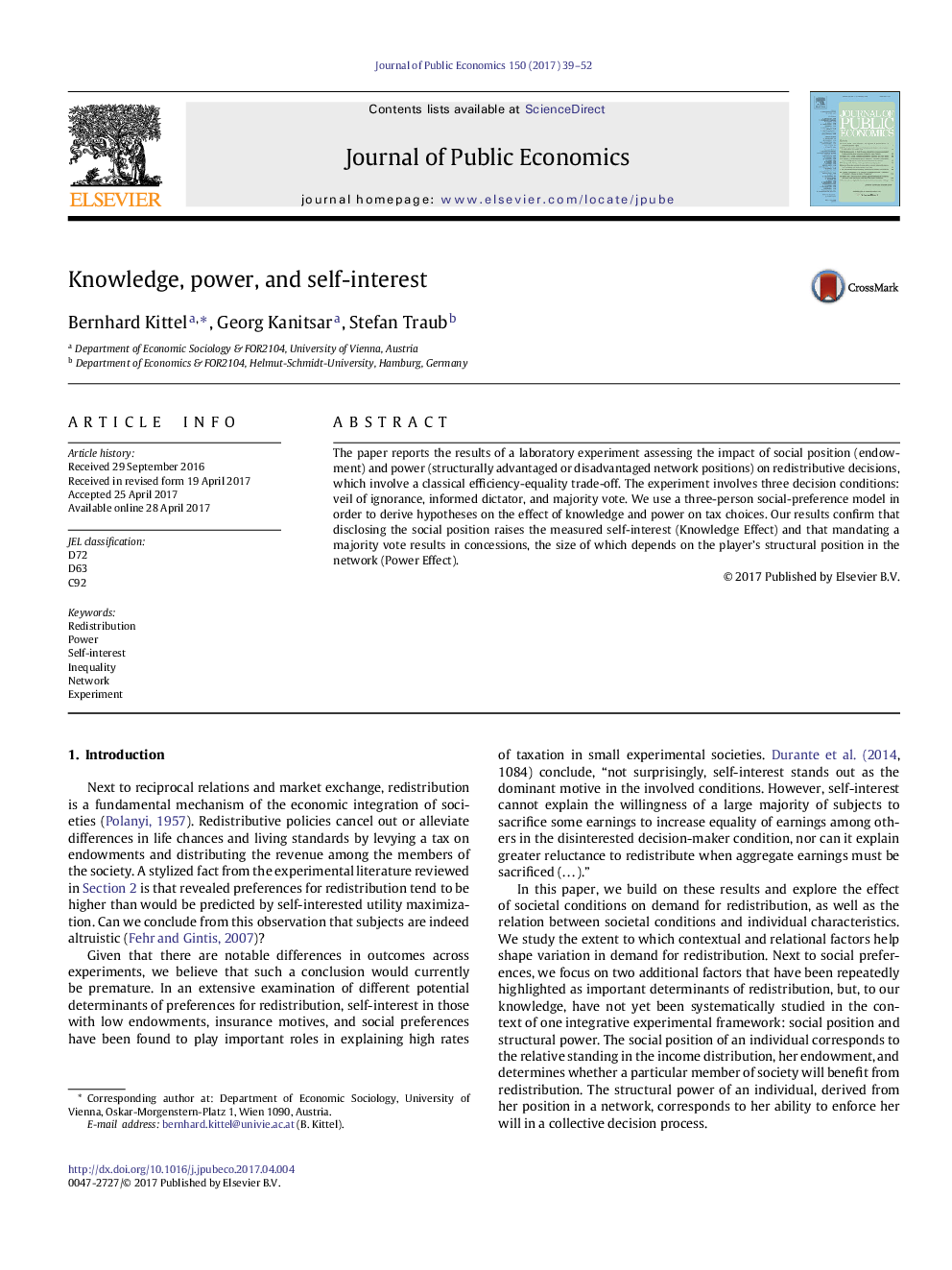| کد مقاله | کد نشریه | سال انتشار | مقاله انگلیسی | نسخه تمام متن |
|---|---|---|---|---|
| 5101794 | 1479407 | 2017 | 14 صفحه PDF | دانلود رایگان |
عنوان انگلیسی مقاله ISI
Knowledge, power, and self-interest
ترجمه فارسی عنوان
دانش، قدرت و علاقه شخصی
دانلود مقاله + سفارش ترجمه
دانلود مقاله ISI انگلیسی
رایگان برای ایرانیان
کلمات کلیدی
ترجمه چکیده
این مقاله نتایج یک آزمایش آزمایشگاهی را برای ارزیابی تاثیر موقعیت اجتماعی (سرمایه گذاری) و قدرت (موقعیت های ساخت یافته یا محروم شبکه) در تصمیمات بازتوزیع، که شامل یک معیار برابری بهره وری کلاسی است، گزارش می کند. این آزمایش شامل سه شرایط تصمیم گیری است: حجاب جهل، دیکتاتور آگاه و اکثریت رای. ما از مدل سه گانه اجتماعی سه نفره استفاده می کنیم تا فرضیه ها را بر تاثیر دانش و قدرت بر انتخاب های مالیاتی بیفزاییم. نتایج ما تایید می کند که افشای موقعیت اجتماعی، منافع اندازه گیری شده (اثر علمی) را افزایش می دهد و این که تصدیق اکثریت آراء، منجر به امتیازات می شود، اندازه آن بستگی به موقعیت ساختاری بازیکن در شبکه (قدرت اثر) دارد.
موضوعات مرتبط
علوم انسانی و اجتماعی
اقتصاد، اقتصادسنجی و امور مالی
اقتصاد و اقتصادسنجی
چکیده انگلیسی
The paperreports the results of a laboratory experiment assessing the impact of social position (endowment) and power (structurally advantaged or disadvantaged network positions) on redistributive decisions, which involve a classical efficiency-equality trade-off. The experiment involves three decision conditions: veil of ignorance, informed dictator, and majority vote. We use a three-person social-preference model in order to derive hypotheses on the effect of knowledge and power on tax choices. Our results confirm that disclosing the social position raises the measured self-interest (Knowledge Effect) and that mandating a majority vote results in concessions, the size of which depends on the player's structural position in the network (Power Effect).
ناشر
Database: Elsevier - ScienceDirect (ساینس دایرکت)
Journal: Journal of Public Economics - Volume 150, June 2017, Pages 39-52
Journal: Journal of Public Economics - Volume 150, June 2017, Pages 39-52
نویسندگان
Bernhard Kittel, Georg Kanitsar, Stefan Traub,
